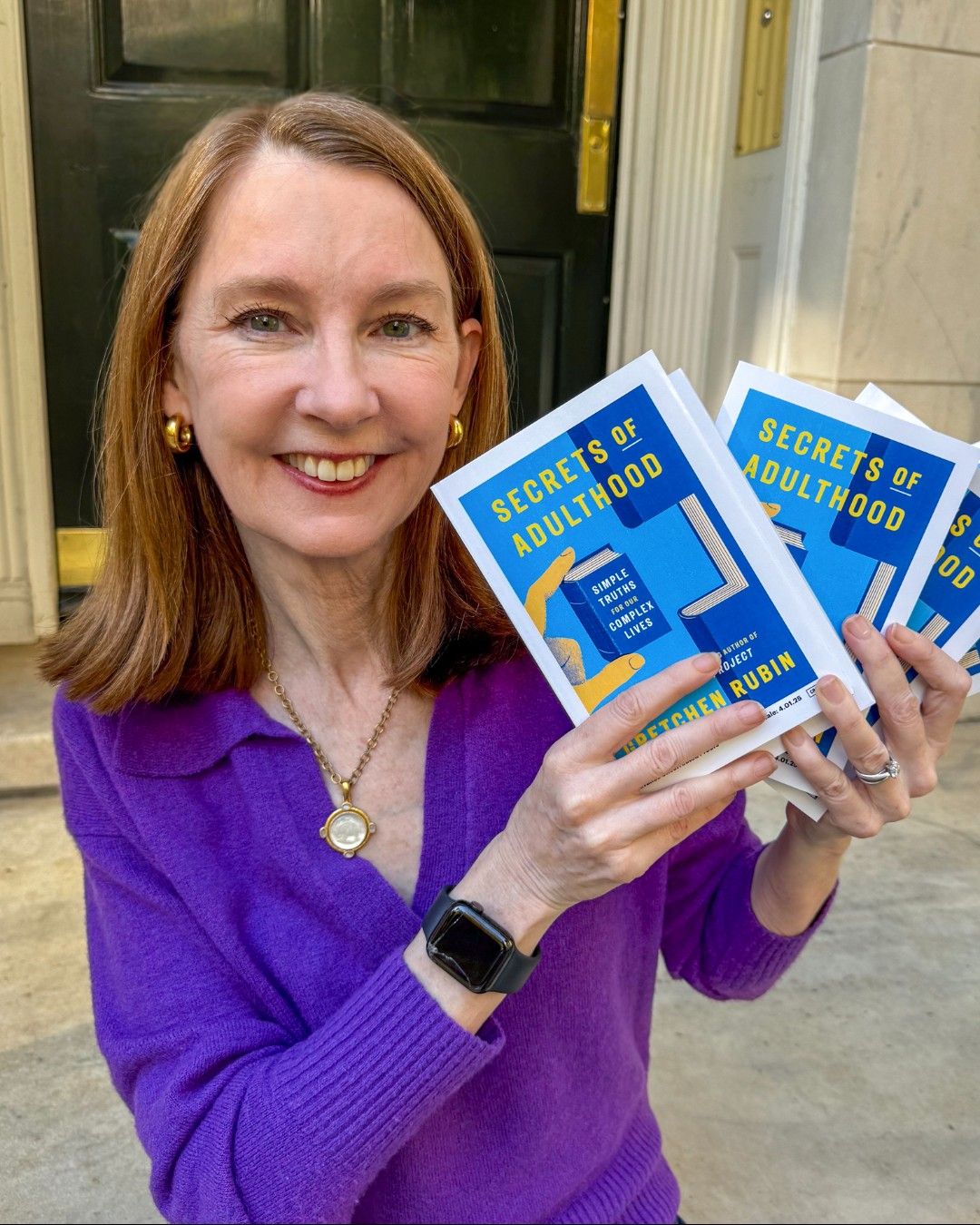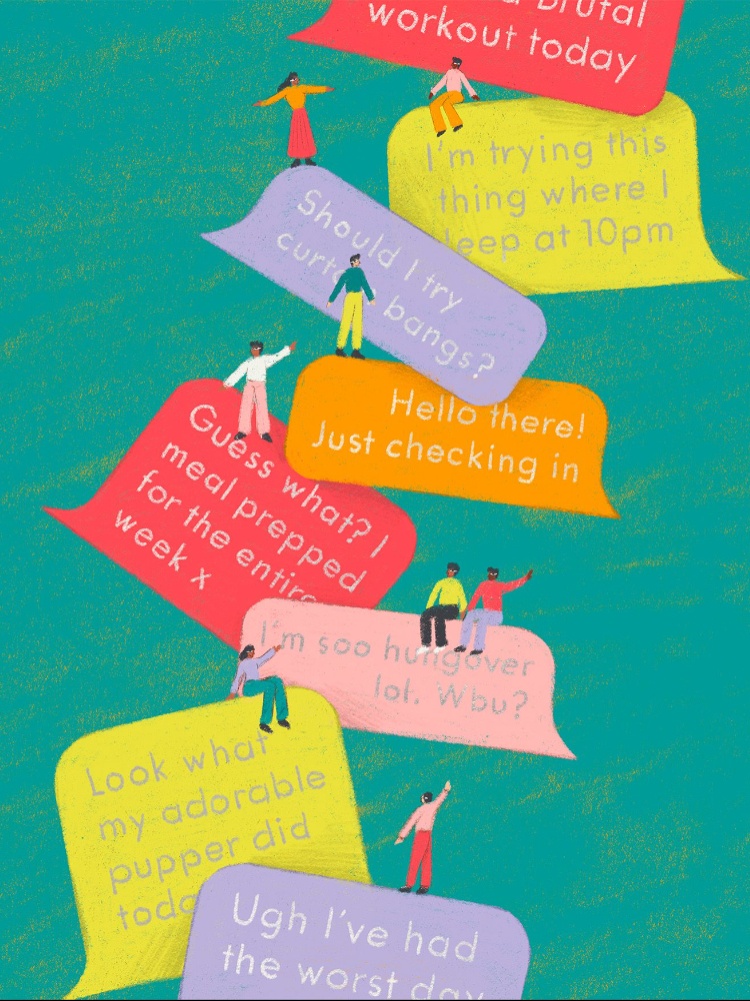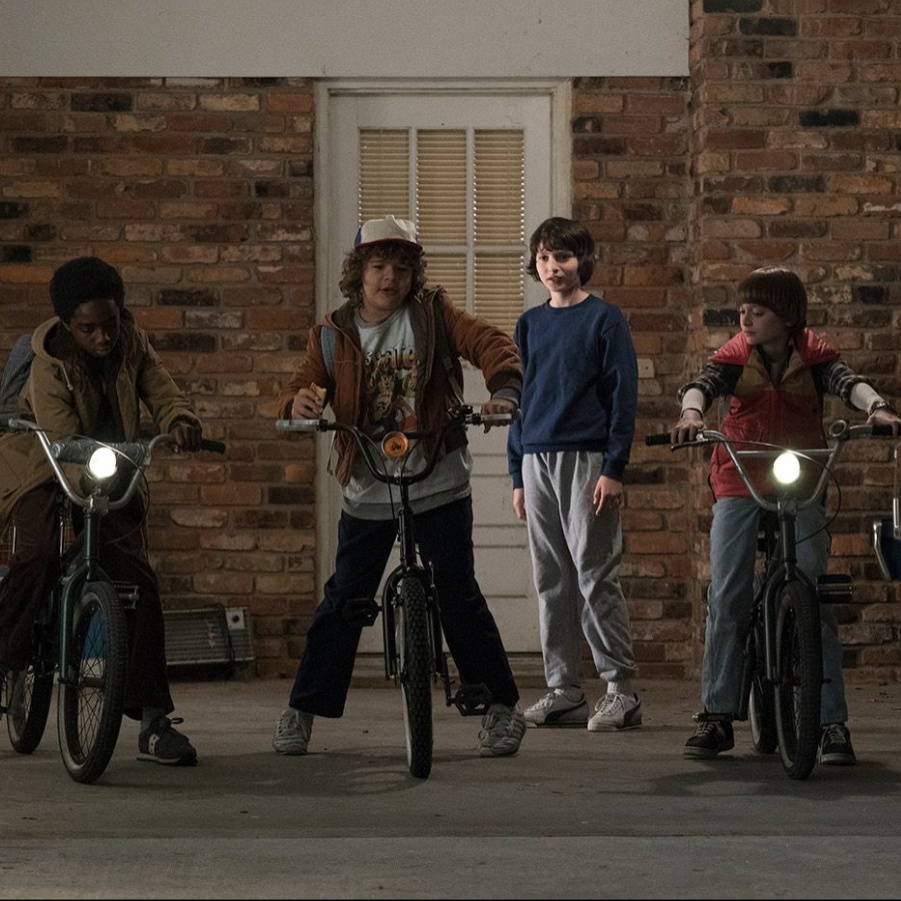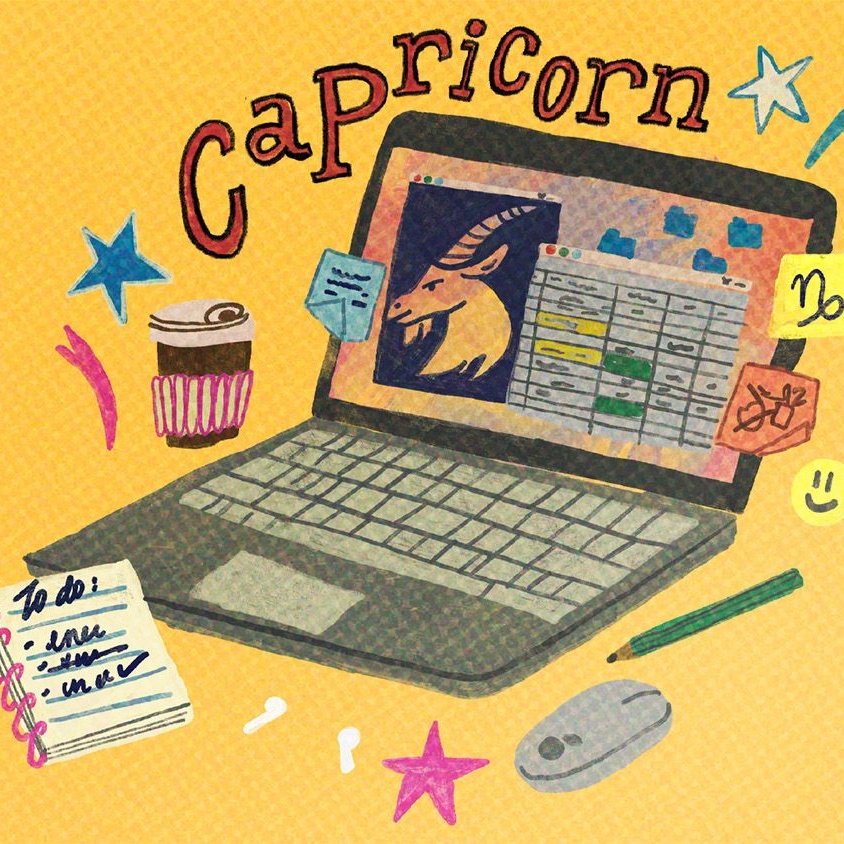Gretchen Rubin has published 11 books, most of which deal with the subject of making life simpler, happier. The lawyer turned writer became the unofficial voice of happiness when, in 2009, her book The Happiness Project introduced simple joy-inducing habits into the lives of more than 3.5 million people who seek answers to life’s big questions in self-help books.
Since then, she has launched a podcast, Happier with Gretchen Rubin, and an app named Happier, where you can set happiness goals (Energy, Relationships, Purpose) and track your progress with friends, in a journal, or a photo log. Just this year she has three new releases:
Her most recent release, in April this year, is Secrets of Adulthood, a book in which she distills her life learnings into thoughtful aphorisms. Last month, she even designed a gratitude journal, I Want You to Know: My Portrait of You, which you can share with your loved ones, and later in November, just in time for new year resolutions, comes a happiness and productivity planner titled Design Your Year: A Guide.

As someone who has investigated the subject of happiness for over 15 years, she gets asked the secret to it—a lot. When I ask her how to bring more cheer into our lives, she delivers her response with the smile of a person who has fielded this question perhaps too many times, knowing it won’t satisfy the person hearing it. The reason—it’s frustratingly simple.
Rubin is speaking to me on Zoom from her New York apartment, in what seems to be her home office. She’s saying something we’ve all heard before: the benefits of sleeping on time, getting some exercise and, most importantly, staying connected to people. Nothing startling or revolutionary, but then again, Rubin doesn’t think the key to happiness is. “I think a lot of times people are looking for some kind of unusual, unconventional quick fix. Instead of saying, ‘I know all the good advice already’, I just need to focus on following it,” she says.
It’s not a dopamine hit that she is preaching; her research has allowed her to break down happiness into habits and tasks that bring more cheer to everyday life. “What I’m interested in is what the individual can do. I really focus on what you could do tomorrow morning to make yourself happier, healthier, more productive, more creative,” she shares.
Surprising as it may be, a lot of us don’t always know what will make us happy. We’re forever hopeful that we may become a bit sunnier in our mindset if we holiday in an exotic destination or eat out at restaurants that come with hard-to-get reservations, but what Rubin is after is everlasting happiness. “People often ask, ‘If I have limited time, energy or money, what should I worry about?’ and the answer is simple,” she says. “Building and maintaining relationships.”
She’s not only talking about romantic relationships but those that we often leave on read: the check-ins with ageing parents, the mundane meal planning with your partner, the poop rituals that some friendships thrive on or the spilling of tea with an acquaintance from college. The long-running Harvard Adult Development Study has 80 years’ worth of data to back that up—relationships are key to happiness and health. The programme started in 1938 with 724 university students—most are now in their nineties—and the study continues to track them even today. What they found was that the people who stayed the healthiest and lived the longest tended to be those who had the strongest connections to others.
Rubin even devised a hack for this pesky business of keeping in touch. She calls it the Update. The motto of an Update is that it’s okay to be boring. And Rubin does it every week with her family, and somehow it never feels burdensome.
Only my phone and I know how often I have procrastinated replying to a friend’s “How are you?” message because I haven’t seen them in a while and am waiting for something reply-worthy to report back with. Short of a proposal by Timothée Chalamet in a meadow full of daises, I’m not sure what news makes it to this list. Most often, I’m collecting funny stories in my mind like gemstones, hoarding them until I speak to that friend, by which time I’ve forgotten all my bullet points.
Don’t wait, advises Rubin. According to her, we often have more to say to somebody we see all the time because they know all the nuances of our lives. Even boring update-y conversations such as “What did you eat for lunch?” or “Did you get enough sleep?” that are often part of our daily lexicon with our family score higher in her book than scheduled monthly catchups.
You can start doing this once a week, but Rubin stresses that the frequency of Updates > Length. In short, even frequent small talk with friends and family can have bigger long-term benefits. It seems, your closeness to someone is not related to how many deep conversations you share but how often and how consistently you reach out to one another. And if this means starting new rituals—Taco Thursdays with your former work wife or croissant and coffee updates with your college group chat—to solidify old friendships, get that going.
Anyone working in the city will agree, it is tempting to cancel all plans and just stay at home, but socialising not only improves our mood, it also makes us happier than we know. So maybe don’t delete Snapchat off your phone just yet, because even just sending photographs back and forth is a great way to keep in touch. And those silly-things-cats-do videos? Keep them coming. “As we get older, our social networks tend to get smaller. So, if you have a big social network now, you’re really setting yourself up for future happiness, but you need to maintain those friendships,” says the happiness expert.
And while working on social bonds with friends and family is crucial to happiness, on the other side of the spectrum lies loneliness, which reports now suggest is damaging our physical health.
Stuck in the country while your friends went to study abroad? Is your job taking you to an exciting position but one without any old friends? Anyone who has lost a close friend to geography knows how difficult it is to maintain a long-distance friendship. Between everyone’s busy schedules and clashing time zones, it’s impossible to squeeze in an Update call so often. Rubin swears by her ritual of “a walk and talk” with her friend who lives in the UK. “We schedule a time when both can both take walks around a park and chat on the phone,” she says. It doubles down on the research that extols the joy-boosting benefits of moving and exercise.
What she’s really saying then is that like most things in life, happiness needs a bit of planning. So, the next time a friend messages you with a vague “We should get together sometime”, jump right in and ask: “How’s next Sunday?”




